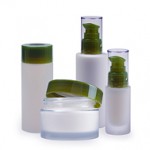Reform of Section 12(1) of the Medicines Act 1968 and Aromatherapy Practice
 Section 12(1) of the Medicines Act 1968 is commonly referred to as the ‘herbalists exemption’ and permits unlicensed herbal remedies to be made up and supplied by a practitioner to meet the needs of an individual patient following a one-to-one consultation.
Section 12(1) of the Medicines Act 1968 is commonly referred to as the ‘herbalists exemption’ and permits unlicensed herbal remedies to be made up and supplied by a practitioner to meet the needs of an individual patient following a one-to-one consultation.
Although it may come as a surprise to some therapists, aromatherapy falls within the remit of the ‘herbalists exemption’, therefore this is a very important section of the Medicines Act 1968, so far as the whole of the aromatherapy industry is concerned.
The Medicines & Healthcare products Regulatory Agency (MHRA) describes Section 12(1) as follows:
- S12(1) of the Medicines Act 1968 exempts the sale, supply, manufacture and assembly of herbal remedies in the course of a business from the licensing provisions in the Act, provided that certain conditions are met. The first condition is that the remedy is manufactured or assembled on premises of which the person carrying on the business is the occupier and which he is able to close so as to exclude the public. The second condition is that the person carrying on the business sells or supplies the remedy for administration to a particular person after being requested by that person, and in that person’s presence (i.e. in MHRA’s view, following a face to face consultation) to use his own judgment as to the treatment required.
Why does Section 12(1) need to be reformed?
Herbalists, aromatherapists and other complementary practitioners use S12(1) as the legislative basis of their practice. However, as stated by MHRA, there is currently no definition in law as to who carries out the consultation, what particular skills or experience are required and no specific requirements as to the safety of the unlicensed herbal medicine supplied. In principle, therefore, anyone can carry out this procedure and it is incompatible with the principles of safeguarding public health and improving consumer safety enshrined in the Traditional Herbal Medicinal Products Directive (THMPD) – which requires the registration of all herbal medicinal products – and the associated Statutory Regulation of Herbalists.
Reform of Section 12(1) is in line with the recommendations of the House of Lords Science & Technology 6th Report on Complementary & Alternative Medicine of November 2000 intended to protect the public from the unregulated and potentially harmful effects of some CAM practices, see: http://www.publications.parliament.uk/pa/ld199900/ldselect/ldsctech/123/12301.htm. The MHRA and Ministers are currently reviewing the reform of S12(1) in the light of the potential Statutory Regulation of Herbalists and the THMPD which will be fully implemented on 30 April 2011. MHRA published a Concept Paper in January 2009 on their project to consolidate and review UK Medicines Legislation over the next 2-3 years. There is a summary of suggestions from stakeholders dated 1 June 2009 on the MHRA web site at www.mhra.gov.uk and a note of next steps, which particularly mentions Sections 12(1) and 12(2) which are thought to be out of date.
Section 12(1) and Aromatherapists
From discussions and correspondence with the MHRA in the past, it had always been understood that aromatherapists needed S12(1) in order to practice aromatherapy. The MHRA now believe that, based on their own research, the vast majority if not all aromatherapy practitioners do not need S12(1) to authorise their practice and that it may be carried out under the Consumer Protection Acts. MHRA have stated that they would not generally regard essential oils blended for external use as a medicinal product – but medicinal claims could potentially make the product medicinal.
Process of the Reform of S12(1)
The Department of Health (DoH) set up a Steering Group, the Herbal Medicine Regulatory Working Group (HMRWG) and the MHRA invited the Group to advise them on the Reform of S12(1). Having sought the views of other groups who might be affected by any reform, in September 2003 the HMRWG published its two reports, commissioned by the Department of Health (DoH), the Prince of Wales’s Foundation for Integrated Health (FIH) and the European Herbal & Traditional Medicine Practitioners Association (EHTPA):
- “Key Recommendations on the Regulation of Herbal Practitioners in the UK” and
- “Recommendations on the Regulation of Herbal Practitioners in the UK, including Recommendations on the Reform of Section 12(1) of the Medicines Act 1968.”
The DoH used the Reports’ recommendations to brief Ministers and launched a consultation document in March 2004 on proposals for the Statutory Regulation of Herbal Medicine and Acupuncture. The MHRA ran a parallel public consultation exercise on Proposals for the Reform of S12(1) and the responses appeared broadly supportive of the overall proposed direction of reform to improve public health protection by restricting the ability to operate under S12(1) to those on a statutory register. The MHRA issued a series of informal discussion papers in December 2006 on key aspects of the proposals for the reform of Section 12(1), with a response date of 30 March 2007. The summary of responses is available on the MHRA’s website at www.mhra.gov.uk and they are also generally supportive of the proposals.
MHRA’s position
It is difficult to argue with the MHRA’s rationale for protecting public health by restricting S12(1) to those on the statutory register when herbalists attain statutory regulation and are recognised in law as healthcare professionals.
- The THMPD is part of European Medicines Law and will regulate herbal drugs by the end of the transitional period on 30 April 2011.
- MHRA are saying in their consultation documents that you cannot have regulated herbalists with the regulated products that they use and then allow anyone else to do the same thing.
- The responses to the MHRA consultation documents would in the main appear to endorse this position.
- The Herbal Medicines Advisory Committee (HMAC) which was set up to give Ministers and the MHRA independent expert advice on the THMPD, strongly supported the recommendations for statutory regulation of herbalists under the Reform of S12(1). Mrs Vivienne Hinks is a member of this Committee and is an aromatherapist.
- The Shipman Report calls for better controls to safeguard patients.
Although there is a high degree of professional self-regulation of the aromatherapy profession including the National Occupational Standards for Aromatherapy and the Aromatherapy Council’s Core Curriculum, it is difficult to see how there could be special exemptions even for a recognised voluntary self-regulated body since there is no way this could be enshrined in law.
The ATC’s position
- ATC is a member of the Herbal Forum, an industry body set up to protect the herbal sector in response to the Traditional Herbal Medicinal Products Directive. The Forum has regular meetings with the MHRA to discuss the implications of the THMPD in relation to S12(1).
- ATC members are either aromatherapists in their own right or work with a professional aromatherapist.
- Some ATC members also offer training courses and they have asked the ATC to take a view on the possible reform of S12(1).
- The ATC is therefore a stakeholder and MRHA agree that ATC have a right to be involved at any level in the reform of S12(1).
Do aromatherapists need S12(1) to authorise their practice and what sort of practice do they undertake?
MHRA does not regulate therapies and S12 (1) has nothing to do with the provision of advice or the performance of non-medical interventions. S12(1) only relates to the supply of an unlicensed herbal remedy, i.e. the treatment blend for an individual or after care products for self-administration which, if not for the exemption granted by S12(1), would have to be licensed. Since MHRA does not consider essential oils blended for external use in aromatherapy to have medicinal properties per se it is MHRA’s opinion that aromatherapists do not need to rely on S12(1) to supply them provided no explicit medical claims are made.
What happens if S12(1) is restricted to statutorily regulated healthcare practitioners like herbalists or withdrawn altogether?
MHRA has confirmed that aromatherpists who use the external application of essential oils for non-medical interventions, such as those with the intention of improving nutrition, maintaining health and well being, promoting relaxation etc., do not need the protection of S12(1) and will be unaffected if and when it is withdrawn.
Aromatherapists who currently make medicinal claims for the essential oil blends they use for external application under the terms of S12(1) will have to stop making explicit medicinal claims, they can continue to make up individual treatment blends for a client on a one to one basis – the ethos of aromatherapy practice – and prescribe after care products but must stop making medicinal claims on labels, advertising, websites and promotional material and instead make use of accepted alternative descriptions. ATC as Code Administrators for the specialist aromatherapy essential oil industry has considerable experience of finding alternative ways of presenting the therapeutic properties of essential oils that are acceptable to MHRA without making medicinal claims.
All aromatherapists will practice under the terms of the Consumer Protection Act, the Trades Description Act, Common Law Duty of Care and the contractual obligations of the client practitioner relationship amongst others. Trading Standards is the competent authority for enforcement.
Aromatherapists would continue to obtain informed consent and follow the professional codes of conduct in the treatment they offered, including holding appropriate insurance.
If aromatherapists sell to the general public and not on a consultation basis as set out above, then their products will be subject to the same legislation as the specialist aromatherapy essential oil trade, i.e. the General Product Safety Regulations or the Cosmetic Products (Safety) Regulations.
Current position
We recently sought the views of the MHRA on some of the above issues and their response indicated that they considered it prudent, since aromatherapists do have the option, to be thinking of an approach which does not mean that they are dependent on a particular outcome to discussions on S12(1).
Meanwhile:
- on the 16th July 2009 the Department of Health published its Report on Extending Professional and Occupational Regulation, see http://www.dh.gov.uk/en/News/DH_4015576 which notes, on page 17, that the Government has agreed to extend statutory regulation to acupuncturists, herbal medicine practitioners, and traditional Chinese medicine practitioners; and
- on the 3rd August 2009 the DoH published a Second Consultation on the regulation of acupuncturists, herbal medicine practitioners and traditional Chinese medicine (TCM) practitioners on their web site at http://www.dh.gov.uk/en/Consultations/Liveconsultations/DH_103567 with a response date of 2nd November 2009. It focuses on the purpose of regulation – public protection – and explores the link between practitioner and product regulation including the current Section 12(1) arrangements. .
Aromatherapists therefore still currently have the choice of using Sl2(1) if they so wish but this is unlikely to continue indefinitely. The Statutory Regulation of Herbalists, the requirement for herbal medicines to be registered under the THMPD by 30 April 2011, and the MHRA’s project to consolidate and review UK Medicines Legislation over the next 2-3 years, all imply that Section 12(1) will be revised in the near future.
We would therefore suggest that the aromatherapy profession review their use of S12(1) and plan for a future in which S12(1) is not available to them. A policy statement will need to be prepared to define the legislative basis for the practice of aromatherapy and aromatherapists and training providers will need to be informed of the changes to the legislation under which they practise. Fortunately the National Occupational Standards and the Aromatherapy Council’s Core Curriculum do not specify S12(1) but require knowledge and understanding of the appropriate legislation that relates to the work being undertaken. AC will also need to consider whether there are any implications for practitioners’ insurance when S12(1) is reformed.
ATC wishes to make it clear that the information contained in this Paper is provided in good faith and is based on the information that is available at the time the Paper is produced. It is not necessarily comprehensive and is subject to revision in the light of further information. The ATC cannot accept any liability for reliance on the information provided and it remains the responsibility of the individual to ensure they comply with the legal requirements in force at any time.
Copyright © 2009 Sylvia Baker, Ray Gransby, ATC.










